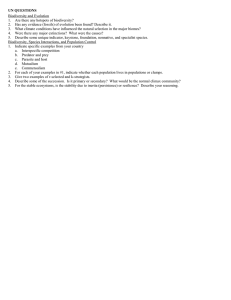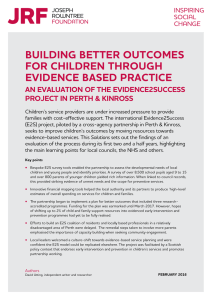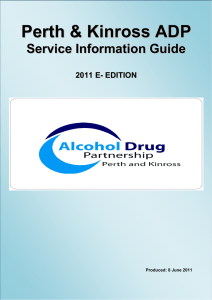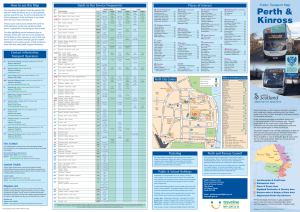Current position Recorded distributions of BAP species indicate
advertisement
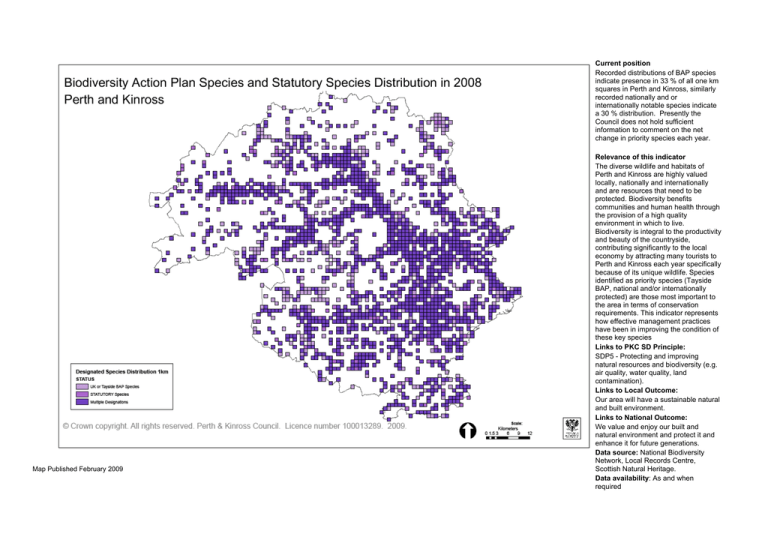
Current position Recorded distributions of BAP species indicate presence in 33 % of all one km squares in Perth and Kinross, similarly recorded nationally and or internationally notable species indicate a 30 % distribution. Presently the Council does not hold sufficient information to comment on the net change in priority species each year. Map Published February 2009 Relevance of this indicator The diverse wildlife and habitats of Perth and Kinross are highly valued locally, nationally and internationally and are resources that need to be protected. Biodiversity benefits communities and human health through the provision of a high quality environment in which to live. Biodiversity is integral to the productivity and beauty of the countryside, contributing significantly to the local economy by attracting many tourists to Perth and Kinross each year specifically because of its unique wildlife. Species identified as priority species (Tayside BAP, national and/or internationally protected) are those most important to the area in terms of conservation requirements. This indicator represents how effective management practices have been in improving the condition of these key species Links to PKC SD Principle: SDP5 - Protecting and improving natural resources and biodiversity (e.g. air quality, water quality, land contamination). Links to Local Outcome: Our area will have a sustainable natural and built environment. Links to National Outcome: We value and enjoy our built and natural environment and protect it and enhance it for future generations. Data source: National Biodiversity Network, Local Records Centre, Scottish Natural Heritage. Data availability: As and when required

